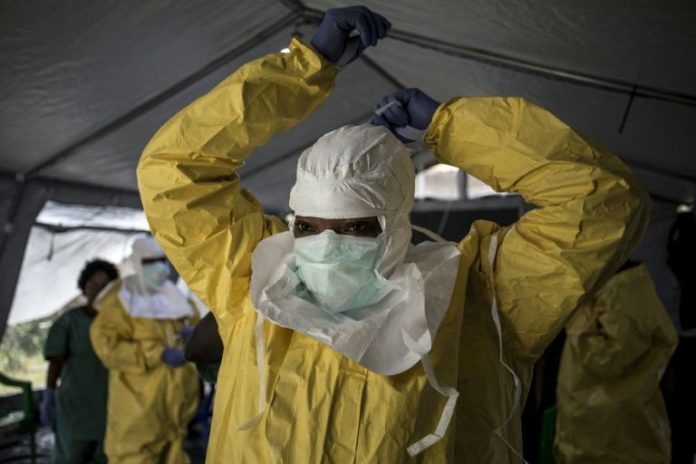GENEVA, Aug 24, 2018 (BSS/AFP) – The Ebola outbreak in the Democratic
Republic of Congo has spread to a city surrounded by rebels, creating
challenges responders were “dreading,” the World Health Organization said
Friday.
One probable case and one suspected case have emerged in the city of Oicha
in DRC’s North Kivu province, WHO’s emergency response chief, Peter Salama,
told reporters.
While Oicha itself is not under rebel control, Salama said the city is
entirely surrounded by territory held by a feared Ugandan insurgent group
known as the Allied Democratic Forces (ADF).
“For the first time we have a confirmed case…in an area with high
insecurity,” Salama said.
“It really was the problem we were anticipating and the problem at the
same time we were dreading.”
Large numbers of civilians have been killed by unrest around Oicha, while
aid workers, priests and government employers are currently being held
hostage there by insurgents, according to Salama.
The outbreak, the 10th to hit DRC since 1976, began on August 1 in the
North Kivu town of Mangina.
The virus has killed 63 people so far — out of 103 confirmed or probable
cases — but Salama warned health workers were expecting “at least one
additional wave of cases.”
The Oicha cases have made containing the virus more difficult.
“We are going to have to operate in some very complex environments,”
Salama said.
UN teams are only allowed to travel to Oicha with armed escorts.
If the number of patients, or contacts of patients, in the city surges,
the logistical hurdles and costs will mount.
After its widely-criticised handling of the 2013-2016 West Africa Ebola
epidemic that killed 11,300 people, WHO pledged to revamp its response
systems.
The UN agency was widely praised for quickly containing an outbreak in
DRC’s northern Equateur province earlier this year, but said from the outset
that restive North Kivu in the east of the country posed additional
challenges.
“We are at quite a pivotal moment in this outbreak,” Salama said. “We are
truly at the crossroads.”



